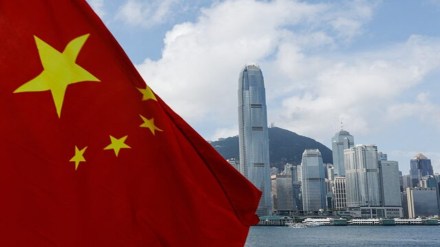By Harsh V Pant & Kalpit Mankikar, Respectively vice-president for studies and fellow, China studies, ORF
Beijing instituted export curbs on seven rare earth elements and magnets that have applications in defence, energy, and car manufacturing sectors in April as a result of US President Donald Trump’s tariff war on Chinese products. Seven of 17 rare earth elements—samarium, gadolinium, terbium, dysprosium, lutetium, scandium, and yttrium—come under the ambit of the new restrictions. The new regulations necessitate that companies procure special licences to export the minerals and magnets.
As the Chinese state builds a Great Wall of red tape, private firms have been buried under paperwork to obtain compliances. The shortages caused due to the latest controls underscore how dependent the West is on China for critical components in manufacturing electric automobiles, wind-turbine generators, and military aircraft. The numbers lay down the stark truth. Chinese customs statistics reveal that overall consignments of rare earth magnets decreased 52.85% in May—the sharpest month-on-month decline since January 2012.
This worrying development is a series in China’s moves to have a greater say in the trade of resources. Beijing had imposed export restrictions on tungsten, graphite, magnesium, and aluminium alloys that are used in producing electronic goods shortly after Trump’s victory in the 2024 presidential election. Facing the brunt of increasing technology curbs in the Joe Biden presidency, Beijing imposed export controls on gallium and germanium, both of which are important inputs in manufacturing semiconductors and electronics. These regulations incidentally kicked in on the eve of then US secretary of the treasury Janet Yellen’s trip to Beijing in July 2023.
China then accounted for nearly 98% and 60% of international gallium and germanium production capacity. At the time, Beijing had signalled that if the West denied China access to advanced knowhow, its countermeasures would also escalate. A total ban was implemented on germanium and gallium exports in December 2024 shortly after the US introduced curbs to check China’s capability to produce advanced semiconductors.
This episode highlights the divergence in Western and Chinese thinking. For long, the conventional wisdom was that in world trade if there was minimal governmental interference, countries would benefit in areas where they had comparative advantages. Due to unfettered trade, nations would become interdependent and such linkages would thwart feelings of enmity and promote international peace. This was the bedrock of the much-vaunted globalisation project.
Chinese President Xi Jinping saw China’s participation in overseas supply chains as a matter of national security. As global opinion turned adverse against China in the aftermath of the pandemic that originated in Wuhan, Xi in 2020 advocated burrowing into international production chains, and such integration would form a powerful countermeasure against “arbitrary action” by other nations. On cue, the Export Control Law came into effect in December 2020. The law restricts the export of sophisticated technology and “strategic materials” to specific companies and permits the Chinese government to act against nations or regions that violate its national security or “interests”. Under this law, exports of the controlled items require official clearance after meeting compliances.
The addition of the term “interests” in the legislation suggests the state would have more leeway to move against entities it sought to penalise. China brought out a white paper in 2021 that backed the state instituting export controls to regulate trade in science and technology to protect economic and national security. The behemoth state-owned enterprise, China Rare Earth Group, was established in 2021 after the merger of disparate units like Aluminium Corporation of China, China Minmetals Corporation, and Ganzhou Rare Earth Group. These developments indicated that Beijing intended to tighten control over strategic minerals.
The owner of a rare-earths trading firm described this scenario as a “silent war” that the public was largely aware of, “war” being the operational word. For long, issues of economic security and national security have been treated as separate even though they are closely connected. Electric automakers in India have complained about Chinese curbs on export of rare-earth magnets as the shortages threaten to derail production plans.
This theme of supply-chain warfare resonated in Prime Minister Narendra Modi’s speech at the BRICS summit in Brazil this month. Modi called for global cooperation to make supply chains for critical minerals and technology secure and reliable. In a swipe at China, he said it was important to ensure no country used these resources for its selfish gain or as a weapon against others.
India’s response to the strategic minerals challenge has been to improve domestic capacity and align with international initiatives. It launched the National Critical Mineral Mission this year to establish a framework for achieving self-reliance in the sector. In the works is a plan to set up the Centre of Excellence on Critical Minerals to update the mineral list and direct strategy. The Quad foreign ministers’ meeting in Washington in July warned that reliance on one country for processing and refining critical minerals and derivative goods production exposed industries to economic coercion, price manipulation, and supply-chain disruptions that harmed economic and national security.
In response, the Quad Critical Minerals Initiative was launched to strengthen cooperation on priorities such as securing and diversifying reliable supply chains, and electronic waste critical mineral recovery and reprocessing. The initiative will see participation of private players to draw investments. India backed the Critical Minerals Action Plan proposed at the G7 Summit in Canada in June. The G7 finance ministers resolved to boost the “Resilient and Inclusive Supply Chain Enhancement” initiative for critical minerals in which Japan, Canada, Germany, Italy, South Korea, and the UK have collectively pledged $50 million. This race to the bottom to mine resources will be watched closely.
